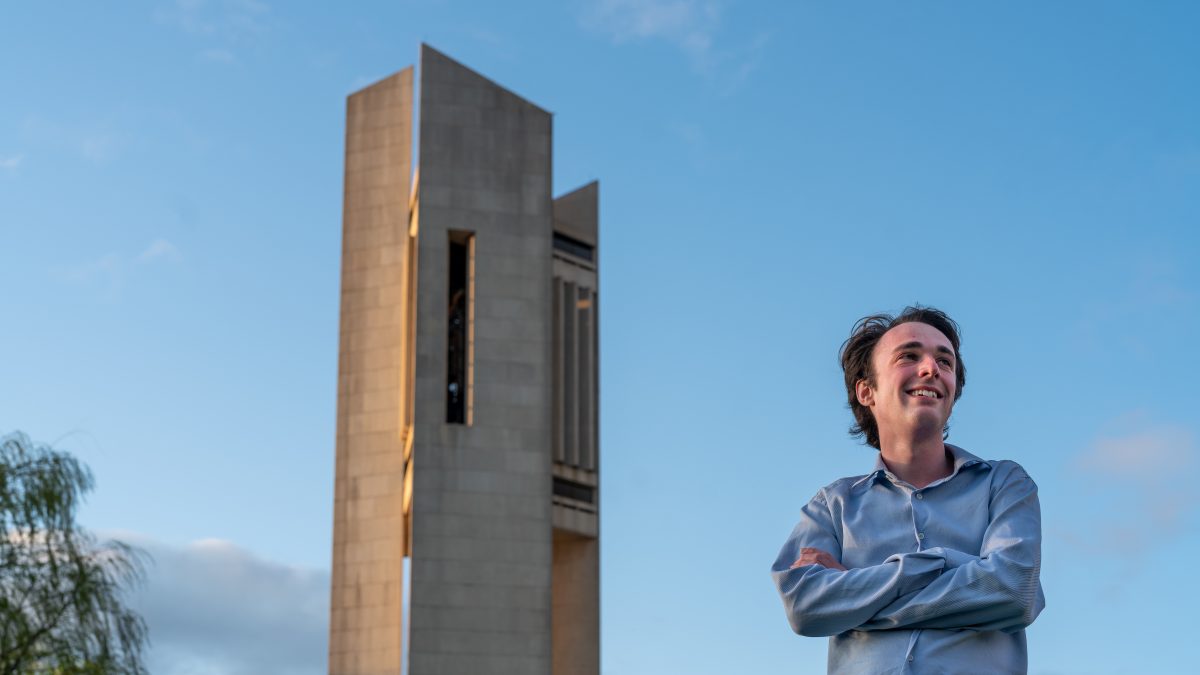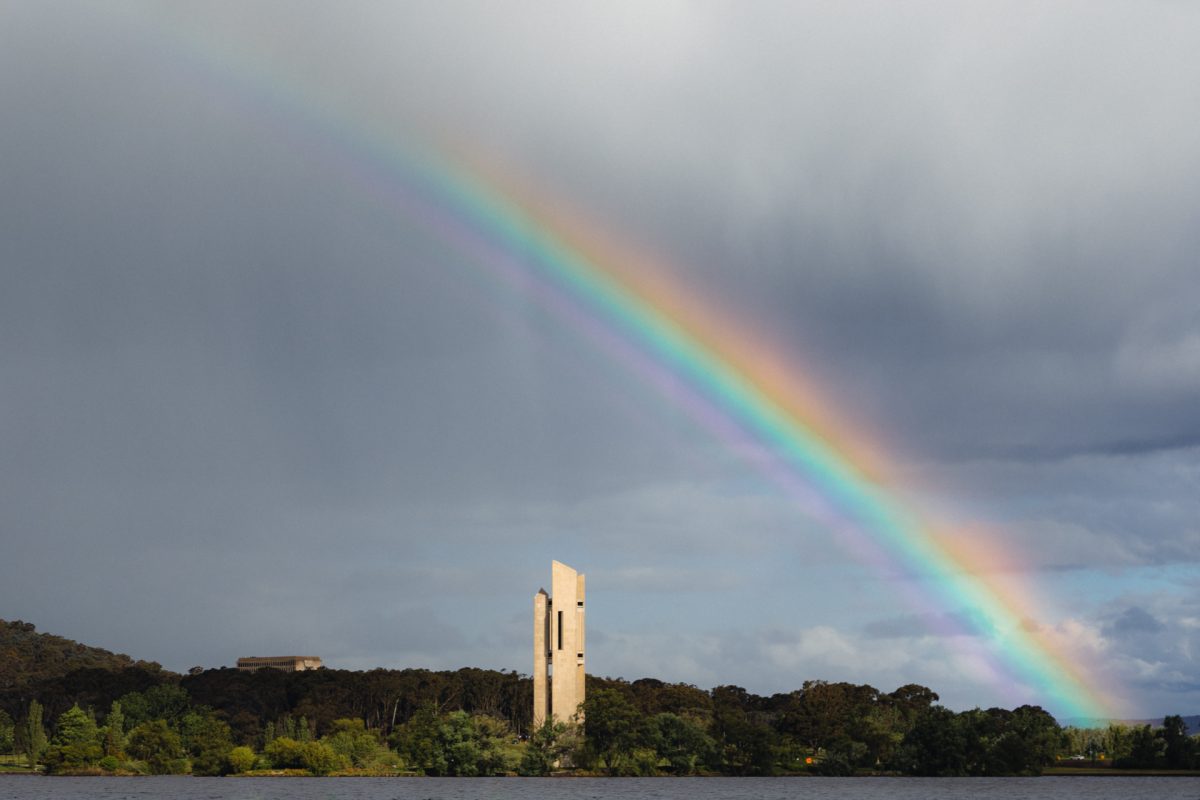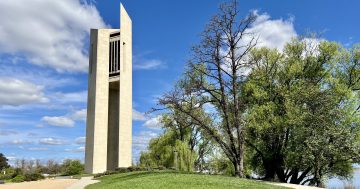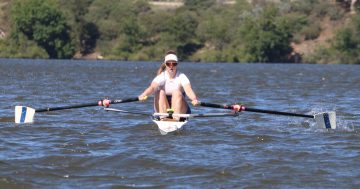
Caspian Scott stands outside the National Carillon on Queen Elizabeth II Island in Canberra, Australia. Photo: Jamie Kidston, ANU.
An aspiring young music composer from Chisholm has won a major international prize for his piece written for the carillon.
Caspian Scott is in his second year of music at the ANU. He is “shocked” to have won the Carillon Composition Competition with his second-ever piece for the instrument, called ‘Idle Spires of Carillon’.
The biennial competition is organised by the Iowa State University (ISU) in the US, but it’s fitting this year’s win went to someone who has lived in Canberra since age two, given our own city’s connection to the carillon.
The National Carillon has towered 50 metres over Queen Elizabeth II Island (formerly Aspen Island) on Lake Burley Griffin ever since the British Government gifted it for the 50th anniversary of the national capital.
It’s one of hundreds across the world and three in Australia. Caspian describes it as “kind of like a big bell tower”, but where a carillon must have a minimum of 23 bells, ours goes above and beyond with 57 bronze bells, each weighing between seven kilograms and six tonnes.
Carillonists play these suspended stationary bells from a keyboard of wooden batons and pedals called a clavier, located about halfway up the tower.

The late Queen Elizabeth II officially opened the National Carillon on 26 April 1970. Photo: Michelle Kroll.
It’s best heard anywhere with an unobstructed view of the tower, within a radius of about 100 metres. The pitch of the bells ranges chromatically through four-and-a-half octaves.
A class assignment first sparked Caspian’s interest in the unique and massive instrument.
“I was quite excited by the idea of creating a short one-minute piece and potentially hearing my work played from the National Carillon one day,” he says.
“I got some good feedback on that assignment, which gave me a bit more confidence. My lecturers told us about the ISU competition, and I decided to give it a shot.”
The National Carillon’s old clavier is kept in the ANU’s Keyboard Institute, the most extensive collection of keyboards in the Southern Hemisphere. The batons – or keys – have been programmed with synchronised sounds that mimic the original bells.
Caspian didn’t actually play it for practice but read through a plethora of online resources to get to grips with how to write for the carillon.
“We do that all the time. We don’t necessarily have to play the instruments we write for, as long as we understand the fundamentals of how they work.”

Clavier keys, or batons, on the old clavier from the National Carillon. Photo: ANU.
Caspian is more accustomed to composing for string quartets, jazz bands and even the guitar and describes the metal bells of the carillon as a different beast. So he waited anxiously for the results to come through.
“Entering a competition like this is not something I would normally do. But I did the hard work and the research. The key is understanding what the instrument is capable of, what notes can and can’t be played on it.”
A month of double-checking the instructions on the website went by before the “surreal” news arrived.
“I’ve had my moments of doubt as a composer – I think all musicians do – so this was a really nice surprise,” he says.
His advice for other aspiring musicians?
“Even if you don’t win, you might learn some things that help you improve. If you see an opportunity you have to seize it – but it does take some self-motivation.”
For now, ‘Idle Spires of Carillon’ will be played on ISU’s Stanton Memorial Carillon. But it is also coming to our own National Carillon “later in the year or early next year”.
Caspian is also organising a composer’s concert at the ANU Larry Sitsky Recital Room from 7 pm to 9 pm on Monday, 24 October. This will be a live performance of colourful and original pieces of music written by over a dozen student composers at the ANU. Entry is free. Book online.















